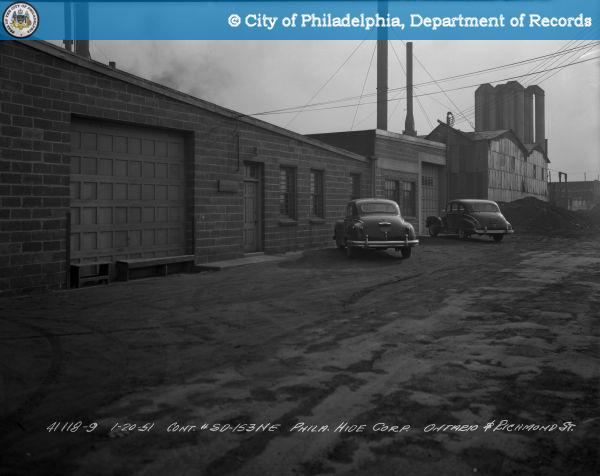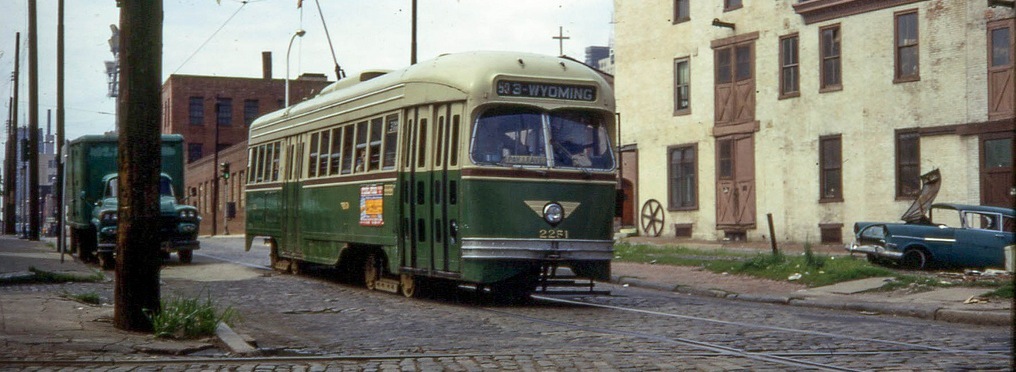The writings of David Goodis are marked by intensity, cynicism and negativity. His writing is tight. Words and images jump off the page. The pace is rapid. The characterization of women is nasty.
What kind of person wrote this way? What drove David Goodis? Did he hate women?
Eric Rice on discovering Goodis. YouTube by Duane Swierczynski
The David Goodis of internet fame was a shadowy figure. He is portrayed as depressed, eccentric and reclusive. He wrote by day holed up in his parents home. By night, he cruised the underside of Philadephia, frequenting Black bars and getting involved with obese Black women who verbally abused him. He cared for his mentally ill brother. He slept on a friend's couch in Hollywood, drove junk cars and wore rags. He drank himself to death, dying of liver disease. Such is the legend of David Goodis..

In search for the historical David Goodis, I interviewed family and friends. His cousin, Bernie Shapiro, is keeper of the family flame and defender of the Goodis reputation. Louis Boxer and I visited Bernie Shapiro, about five years younger than David, at his home in Delaware County. I spoke to Paul Halpern, about 25 years younger than David, by telephone from his home in Florida. I interviewed his cousin, April Feld Sandor, who was encouraged by Goodis to be an actor. Sitting in the home where she grew up, she pointed to the area in the living room where David performed his pranks and told his jokes. I visited Goodis' grave and the site of Superior Billiards with Harold Silver, a Philadelphia political pro who taught David Goodis how to shoot pool. I interviewed by telephone Julian P. Rockow, who as a young lawyer, represented Goodis in his suit over the Fugitive television series. I interviewed Leonard Cobrin at a friend's home on Rittenhouse Square, Herb Gross at GoodisCON and radio personality Frank Ford at his home in Society Hill in the company of Louis Boxer and film maker Larry Withers.
A different picture of David Goodis emerges from these interviews. Harold Silver and Julian P. Rackow remember David Goodis as pleasant and mild mannered. Everyone recalls David's outrageous sense of humor. Len Cobrin and Herb Gross note that he parried inquiries about his private life. He is always spoken about with warmth and affection.
The legend of David Goodis was the result of his outrageous stories and pranks. People believed things he said in jest as being true. His cheapness may have been part of his humor, but was taken seriously. He wrote by day in his parents home. He was divorced. His secretiveness allowed stories of his life by night to take hold.

Julian Rackow
Bernie Shapiro recalled that David was part of a huge extended family. His mother, Mollie Halpern, was one of 11 children. The family gathered frequently for family celebrations, cousins clubs, Passover seders, weddings and bar mitzvahs.
Bernie Shapiro said that the Halpern family came to America from Romania. David's parents were American born. David's maternal grandfather, Morris Halpern, was one of the founders of B'nai Jeshurun, the leading synagogue in the Strawberry Mansion section of Philadelphia. David's father, William Goodis, was a manufacturer. According to Len Cobrin, David’s mother was active with Hadassah (a women’s charity supporting hospitals in Israel) and Deborah Hospital. Bernie Shapiro said that David's parents, along with several other relatives, moved to Logan, then a new, middle class neighborhood. Bernie Shapiro and Robert K. Greenfield, attorney for the Goodis Estate, lived in Logan at various times.

David's parents belonged to Beth Sholom Congregation, an upscale Conservative synagogue, at Broad and Cortland Streets, in Logan. However, Bernie Shapiro remembers David as going to the synagogue only on rare occasions. He does not recall David as being religious or observant. Frank Ford remembers Goodis as being highly Americanized and not particularly ethnic. Bernie Shapiro says that David was an unabashed liberal. He expressed his opinions freely. David had tremendous affinity for the underdog. He had great sympathy for people of color. Despite his views, David was not active in politics. He was not a committeeperson. He was not a big-name giver to political causes. David was not active in Jewish or secular charities. Whatever he gave, he gave privately, Bernie Shapiro said.

Beth Sholom Congregation, March 6, 1951. William and Mollie Goodis belonged to this synagogue. Herb Goodis maintained a scrapbook of David's achievements. Included in the scrapbook is a clipping from the synagogue newsletter congratulating William and Mollie on David's visit to Philadelphia from Hollywood. The scrapbook also includes a letter to David from Rabbi Mortimer Cohen, commending David on is achievements. The synagogue does not have records which would state whether or not David had his Bar Mitzvah at Beth Sholom.
David thought about joining the Abraham Lincoln Brigade to fight against the facists in the Spanish Civil War (1936-1939). However, a physical disability kept David from going to Spain. David did not serve in World War II. Len Cobrin said that David had been classified 4F (medically unfit to serve) by his draft board. Cobrin believed that David had a kidney ailment. In the book (but not the movie) Dark Passage, Vincent Parry had been 4F due to kidney problem. Parry had been characterized as a draft dodger at the time of his murder trial.
The fondest memories of David Goodis are those from family gatherings. Both Bernie Shapiro and Paul Halpern, remember him as a clown, a comedian and a prankster.
Paul Halpern remembered one family party, in which David and a couple of cousins marched in a room with a fife and drum as if they were in the Civil War. David had rolled up his pants leg and wrapped a bandage around it, as if he had been wounded.
Bernie Shapiro recalled how David and another cousin impersonated Laurel and Hardy.
Bernie said that David would attract a crowd by faking a fight. He put red cellophane on is face to simulate blood.
Though they did not remember David as playing a musical instrument, both Bernie Shapiro and Paul Halpern said that David played the comb. He would take toilet paper, wrap it around a comb, and play it as a kazoo. Bernie Shapiro said that David liked jazz.

Paul Halpern said that David had a terrific sense of humor. Bernie Shapiro said that David had a vivid imagination. Talking to him one to one, he was personable and engaging. He would keep everyone laughing. David ws so funny that Bernie Shapiro would beg him to stop the clowning.
Asked if David hated women, Bernie Shapiro said no way. He said David was not a miscogynist. He liked women. David tried marriage, but it did not work out.
Paul Halpern said that David was very avant garde. Paul Halpern related a hearsay account of a cousin, who has since died. The cousin was working as a bar tender on a ship in New York which had been chartered for a private party. Except for the bartender, everyone at the party was Black. David Goodis appears at the bar with a Black wife or girlfriend, that Paul Halpern did not know about. Another version of the story has David explaining that he was doing “research.”
Paul Halpern related how David's humor got him in trouble. David was of slight build. A small man approached David and demanded his wallet and money. David looked at the little guy and the little guy looked back. David said that there was no way that this little guy was going to rob him. David refused to give over his wallet. Out of the shadows, appeared a big man, who beat up David. Paul Halpern saw the bruises. His cousins told Paul Halpern about the details.
Paul Halpern said that David was modest and would not want to hurt anyone's feelings. There is a story, that David met a poor man at a bar. So as not to hurt the man's feelings, David said that his father was a janitor. In truth, David's father owned the factory.
Bernie Shapiro described himself as the senior cousin and defender of David's reputation. He said that David was warm, effusive, personable and popular. He ran with prominent people. He could move well in any social setting. He said there were no pretenses about David. David was not interested in expensive clothes or fancy cars. Bernie Shapiro said he saw David drink, but never saw him drunk. He said that David smoked for a while but quit.
Bernie Shapiro denied accounts that David had a negative lifestyle.

Bernie Shapiro said that David was a very hard worker. He would sit at a typewriter and write magazine articles. He was paid by the page. He wrote under eight pseudonyms. He would go into dangerous neighborhoods and bars to do research. However, David did not become drug obsessed.
As to David's health, Bernie Shapiro said that David did not take care of himself as well as he could. He did not abuse drugs or alcohol. However, David did not get enough rest.
Why did David write as he did? Bernie Shapiro said that David was not writing about his own class. David's family was very middle class. He was not writing about his own life. Bernie Shapiro said that David was tolerant. He was liberal in his politics. David felt for the downtrodden. Bernie Shapiro said that David soaked up the atmosphere of lower class settings.

Philadelphia Hide Corporation, Ontario and Richmond Street, January 20, 1951. Down There (Shoot the Piano Player) took place in this neighborhood.
Notwithstanding the internet legend, David Goodis did not drink himself to death. His death certificate showed he died of a stroke. His cousin April Feld Sandor explained, "The whole Halpern family had heart disease. It is a family of bad arteries. The Halperns who later could get bypasses and angioplasties are still around."
"There are conflicting stories about how hard a drinker he was or was not," she said. "He could be the life of the party and not drinking. I never saw him drunk."


